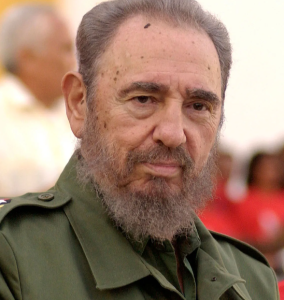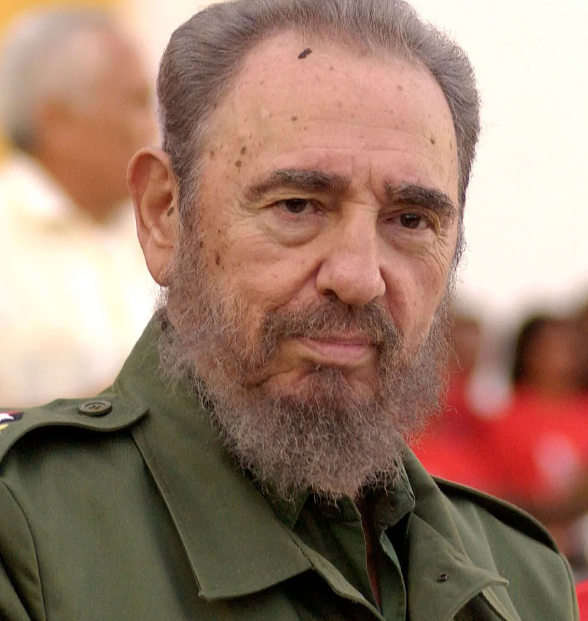By Owei Lakemfa
THE Israeli bombs that rained down on Gaza has killed over 200 health workers with 215 injured. In Havana, Cuba, 10,953 kilometres away, Palestinian youths being trained as medical doctors, gathered to mourn the human carnage in their country and vowed to take the next available flight back once they complete their studies to replace the murdered doctors.
In a show of the famous Cuban sense of humanism, President Miguel Diaz-Canel on November 17, 2023 met with the Palestinian students to express the solidarity of the Cuban people. Then on November 23, draped in the black-and-white Palestinian keffiyeh, he led the Palestinian students and a huge mass of Cubans in a solidarity march across Havana passing in front of the United States, US, Embassy, demanding a ceasefire in the Israeli-Palestinian War. Also participating in the march, were the Cuban Prime Minister Manuel Marrero, Foreign Minister, Bruno Rodriguez and the President’s wife, Lis Cuesta.
The solidarity the Cubans are engaged in on the Palestinian issue, is no fluke. They showed Africans a thousand times more solidarity when we were in our most vulnerable state. That was in the 1980s when Apartheid South Africa, supported by the US, Britain, Israel and their allies, held us in the jugular. Apartheid held down Namibia and enslaved the Blacks in South Africa with liberation icons like Walter Sisulu, Govan Mbeki and Nelson Mandela held in prison as terrorists. Additionally, the Apartheid regime with a mighty military equipped by its Western allies, invaded African countries like Zambia, Swaziland, Lesotho, Botswana, Mozambique, Zimbabwe and Angola at will.
Africa seemed helpless. Most countries merely made declarations. So, with the support of the Apartheid regime by some world leaders like President Ronald Reagan and Prime Minister Margaret Thatcher, the situation appeared hopeless. However, Cuba took action. It sent a total 55,000 troops over 9,000 kilometres from Havana to Africa to fight Apartheid and liberate the African continent.
Thousands of heroic Cuban youths lost their lives fighting for Africa. In the historic Battle of Cuito Cuanavale, Angola, the Cubans roundly defeated the Apartheid forces, chasing them into colonised Namibia where the enemies of humanity begged for a ceasefire. Cuba’s basic demands on the Apartheid regime were independence for Namibia leading to independence for South Africa. Two years later, Namibia became independent on March 21, 1990 and South Africa, on April 16, 1994.
Cuba which has been under US sanctions for six decades, went before the United Nations General Assembly, UNGA, on November 2, 2023 asking it to vote against the US economic and trade embargo against it. A total of 187 countries voted against the US embargo with only the US and Israel voting for the embargo and Ukraine abstaining. It was the 31st time the UNGA was voting against America on the issue, but the Americans have never shown any respect for the UN resolutions.
Cuba, a small island nation had as at 2021, lost over $1,098,008,000,000 to the unilateral American restrictions which includes embargo on spare parts, medicine, transportation and food.
It has also survived attacks by some 300 terrorist groups which bombed private and commercial places. Cuban aircraft have also been hijacked, taken to the US and destroyed. The most serious of these terrorist attacks was the October 1976 hijack of a Cuban Airline with 76 persons on board. It was flown over the sea and blown up.
The Cuba-US fight is like that between the Biblical David and Goliath. The US has a total area of 3,119,885 kilometres compared to Cuba’s 109,884 kilometres. In other words, the US is over 28 times the size of Cuba. In terms of population, while the US is 331.9 million, Cuba is 11.26 million. So the US population is over 29 times that of Cuba. Yet in over six decades of skirmishes, sabotage and sanctions, the US has been unable to subdue Cuba.
The man who symbolised Cuba’s resistance and unparalleled sense of dedication to humanity, is Fidel Alejandro Castro Ruz. Fidel as he was affectionately called, flew away on November 25, 2016. Exactly on the seventh year of his passing, I joined guests at the Cuban Embassy in Abuja to plant a royal palm tree commemorating his passing.

Cuban Ambassador Miriam Morales Palmero who personally worked with Fidel, explained the choice of tree: “The royal palm was chosen as the national tree in Cuba for being the most numerous of its trees, for being the most notable species in its landscapes, resistant and durable, for its beauty, for its usefulness and for being represented in the national coat of arms.”
She recalled that Fidel told Cubans that they have the ‘duty of compensation’ to “Africa by virtue of the crucial role played by Africans and their descendants in the independence and revolutionary wars (In South America and the Caribbean) in their contribution to the construction of the Cuban nation and in the creation of wealth that successive generations of all races have enjoyed.”
The Ambassador said, Fidel’s speech in Havana on March 21, 1962 on war, remains relevant today as it was 61 years ago. In it, he had said: “In no other minute of human history is peace so necessary, because in no other minute of human history does war mean so much destruction and so much death. At no other minute in human history is the idea of war as terrible as at this moment.”
Dr . Onuche Audu, an Obstetrician and Gynaecologist who studied in Cuba, graduated 48 hours before Fidel passed. He told the audience that Fidel had not died, but had merely “multiplied”. Audu, seeing himself as a representative of Cuba said: “A Cuban doctor prides himself in saving a life even when no money is paid.”
Comrade Abiodun Aremu, the Secretary of the Nigeria Movement for Solidarity with Cuba recalled that there were over 600 assassination attempts on Fidel, especially by the US, but that they all failed because he was what Yorubas call ‘Akanda’, a specially created human being.
He also noted that Cuba has survived over 60 years of blockade by its powerful neighbour, US, but that the country remains standing and viable.
Aremu said that although Fidel was produced by Cuba, he was a gift to humanity. Therefore: “When we solidarise with Cuba, we solidarise with ourselves.” He wondered why Cuba cannot open a bank account in Nigeria, indicating that Nigeria might, vicariously, be carrying out part of the American sanctions against Cuba.
The ruling All Progressives Congress, APC, in a solidarity message delivered by Mr. Ini Akpan Morgan, the Head of its International Department, praised Fidel for the redistribution of the national wealth to the Cuban populace.
Cuba remains a country where dedication to humanity is like religion.
Dear readers, we really need your support to keep on serving you with authoritative, truthful, and juicy stories everyday. For your support, please reach out to the editor @gavelinternational66@gmail.com

